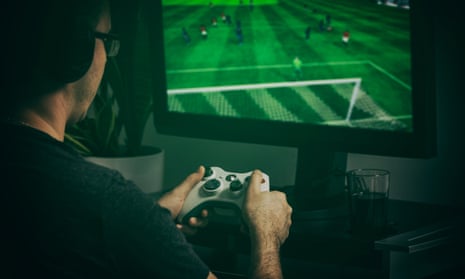To make it as a professional gamer, players are increasingly hoping to hone their fitness as well as their gaming skills. With the League of Legends world championships in full swing in South Korea, where tiny margins of performance make the difference between progression and elimination, many players enjoy the traditional accoutrements of sporting professionals, such as exercise regimes and eating plans.
Carl Hagberg Flink, who co-manages the Fnatic teams, says all players are provided with a gym membership and access to a physiotherapist. After training sessions, the players go “on review” to analyse performance and perform stretching exercises. “We have wrist trainers, those balls that you spin and move your wrist around to exercise your wrist. We also have stretching exercises where elbow and wrist are the parts most focused on.” Carpal tunnel syndrome, a wrist injury, has ended many a gaming career.
“In the future,” Hagberg Flink says, “you will see the same setup as football clubs have.” Fnatic, which has its headquarters in London, already provides some of its players with chefs (caesar salad is top gaming food, Hagberg Flink says, nothing too carb-heavy, even though the players like lasagne). Fnatic’s extended London base will be a bit like a football training ground, Hagberg Flink says, although the gym is across the road.
Over the past few years, personal trainers who specialise in esports have begun to emerge in the US along with athletic facilities that focus on fitness for esports performance. The UK market lags in this regard, but even here gamers are exploring the affinity between traditional sport and esport. Next week, the British Esports Association, a nonprofit that promotes grassroots esport, will partner up with West Ham United and Archery GB to provide a pilot half-term activity week.
The crossover makes sense. “You have to keep yourself fit and healthy if you are a performer,” says Mike Ellis, who manages Team Vitality, one of the top teams in Europe for Rocket League, and enjoys doing strength and conditioning work himself. (He recommends #healthygamer for esports players interested in fitness.)
“These guys are in front of the camera. In the same way as people performing, if you look good you are going to feel good – and play better.”

Comments (…)
Sign in or create your Guardian account to join the discussion